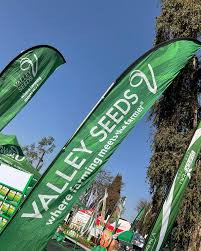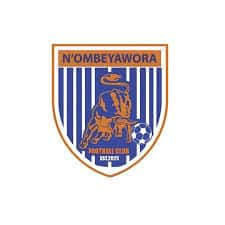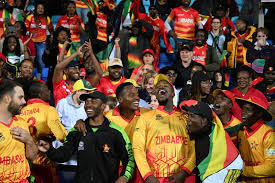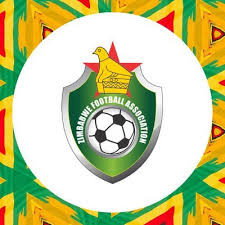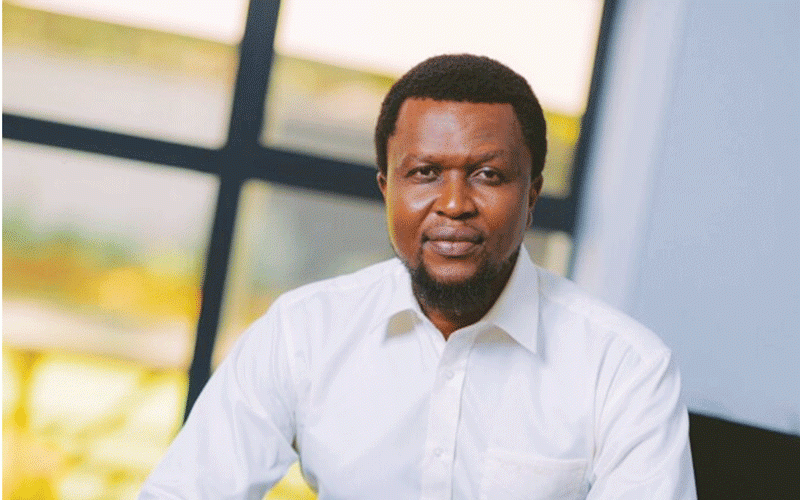
NQOBILE Magwizi, an aspiring Zifa president, has pivoted his campaign on five pillars anchored on strong governance and institutional framework that recognises councillors at the heart of football development.
The business executive believes a strong governance structure supports other pillars — strong partnerships, commercialisation, infrastructure and technology and excellence on the pitch.
Magwizi, former Premier Soccer League boss Twine Phiri, Northern Region Soccer League chairperson Martin Kweza, former Zifa board member Philemon Machana, football advocate Marshall Gore and former Highlanders and Dynamos striker Makwinji Soma Phiri will battle it out for the presidency in the January 25 plebiscite.
He is an advocate for building a strong institution where there is delineation of roles among players within the institution, the board, executive and the secretariat.
Magwizi noted that after the Warriors qualified for this year’s Afcon finals two businessmen opted to reward the squad with US$250 000 but did not want Zifa to administer the funds.
To him it “shows that the brand is broken and no one has confidence in it”.
“Government has no confidence in the brand because it is still looking for the reconciliation of the last Afcon, it is also wondering what is happening,” he said, adding, “We had a president in the last administration making decisions to buy tissues, deciding to buy kits and doing the job of the secretariat”.
“We need to build a strong institution.”
- War vets promote peace ahead of March 26
- War vets promote peace ahead of March 26
- ZPRA veterans demand apology
- ZPRA veterans demand apology
Keep Reading
Magwizi wants to capacitate councillors as they constitute football’s parliament.
A South African university is agreeable to work with its local counterpart to offer courses in football administration so that “councillors can also get trained”, he said.
The executive wants to decentralise Zifa operations.
“If I win, I will make sure that we have regional associations with assemblies. Each region must be given a budget,” Magwizi said.
“When money comes from Fifa, it will be distributed equitably.”
He wants councillors to be given the stature they deserve.
“We cannot allow them to be vulnerable. I will request government to consider giving councillors rebates to import vehicles during their tenure. They are using their personal resources to keep the game going.”
“Our game will die without councillors.”
Magwizi said partners only responded to a good institution and the number one partner was government.
“We need to make sure that government has confidence in what we are doing. If the government is confident it will be more than ready to assist with funding required by an FA,” he said.
Zimbabwe, he said, could take a leaf from Morocco where the government funds the FA and all budgets for football are a priority.
The business executive said an association could not succeed without corporate participation, but companies can only inject their monies “if they believe there is value that you are giving them”.
Magwizi said non-governmental organisations (NGOs) were also a key partner as the FA was more of a development agency because most of its work is football development.
“It’s important to understand that NGOs have interest in the girl child, young boys, child-headed homes. Imagine if an NGO that is interested in addressing issues of substance abuse then bring them on board. They fund the expenses of bringing all the young boys to come and watch football. They are addressing their objective of highlighting the issue of substance abuse and there are young people who are watching football. So everyone is winning,” he said.
Relationships with Fifa and Caf are also critical for the growth of local football.
“A lot of projects have been carried out with funding from the two institutions. In South Sudan, Fifa built a US$5 million stadium,” he said.
Because we have a good institution and we have partners that are giving us a solid base, commercialisation means “we are able to create revenue on our own”, according to Magwizi.
“Revenue can be created through merchandising, broadcasting rights, holding of competitions, fan engagement,” he said, adding that Zifa could create its own brand and replica jerseys were sold.
The executive said infrastructure and technology were also key.
“We need to renovate our stadiums. Right now there is the National Sports Stadium where we are installing bucket seats, courtesy of Sakunda. I am a consultant on that. We are hoping that it can be fixed,” Magwizi said.
Energy firm Sakunda Holdings donated bucket seats to government.
“We are waiting for the Caf representative to come and see. We want approval in the manner in which they have been put. Once a Caf expert approves, then we will work on installation. We are pushing aggressively. Sakunda has committed to fund this process. If that happens, it will be left to the Ministry of Sport so that the turnstiles, plumbing are done and the stadium is ready,” he said.
“There must be a high performance centre where players can come before a tournament.Technology to support that infrastructure is also important.”
He said the icing on the cake was excellence on the pitch where “we need to define our football philosophy that will be known from as little as 6-year-olds”.
Once elected into office, Magwizi plans to introduce Zifa-accredited sponsors who will be linked with youngsters in remote areas identified by councillors. The accredited sponsors will chip in with football boots, uniforms.
He said the football cake was huge and not reserved for former footballers only.
“The community of football is huge. There are people that can’t kick a ball, drive the bus to matches and those that maintain the pitch are all part of the football community. You can never say decisions must be made by people who have played football,” Magwizi said.
“Everyone in the community has the capacity to participate. If they can add value, they must participate as opposed to thinking that only someone who played in the national team should be running football.”
On his chances of winning the presidency, Magwizi said he had put his best foot forward.
“I have demonstrated what I can do. I have put my hand up to the community and say ‘look this is what I am able to do. If you give me a chance, I will not disappoint you’. I have given my best foot forward and it’s up to the electorate to make a decision.”
His interest in football began when he was handling sponsorship requests by clubs on behalf of Sakunda.
“Highlanders came in around 2012. Dynamos as well during Kenny Mubaiwa’s time would come and request assistance. Various teams, like Banket United, would come and request assistance. That’s when my journey of being intimately involved with football teams started,” Magwizi said.

